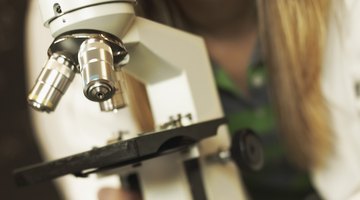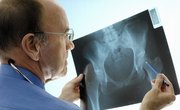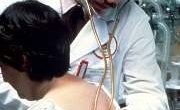To become an emergency room doctor, also called an ER physician, you need to complete at least three years of college, four years of medical school and a two- to seven-year residency. In 2017, the annual average salary of a physician was $208000, or $100.00, per hour. Prospective ER physicians have to take many tests along the way, including the Medical College Admissions Test and licensing and certification exams. Some doctors are also board-certified, which is an additional high-stakes exam. High school students who are interested in being ER physicians can take the right classes before graduation and participate in community service to be prepared for medical school. As you plot your classes, consider what to major in to become a doctor.
Science Courses
To get into medical school after college, you must perform well on the MCAT. This test focuses on biological and physical sciences, so taking as many science courses as possible in high school and college will start preparing you for medical school. Take advantage of any science electives that may be offered, such as anatomy and physiology. Some high schools partner with local colleges and universities to give students the opportunity to earn college credit while they are still in high school. Taking advantage of dual-enrollment programs can give you the opportunity to take advanced science courses for free or drastically lower tuition rates. This can significantly lower your debt load after graduation and slightly reduce the many years of college to be a surgeon. You will also get a taste of the academic challenge that college will provide.
High School Math Courses
You may be wondering what degree you need to be a surgeon. Math and science go hand in hand. An ER doctor uses math to determine the correct dosage of a medication or the rate that an IV should be administered. Physicians also need to understand how to read test results that are based in mathematical calculations. To perform well in many science classes, it is essential for you to have a strong mathematics background. High school students who are interested in the field of medicine should take the most challenging math classes that their school offers, which may include trigonometry, statistics or calculus. Given the advanced math and science skills that will be required in medical school, begin building a strong math foundation early.
Honors and AP Classes
To get into a good medical school, you need to have excellent high school and college grades. Taking advantage of honors and AP classes in high school provides you with a more robust educational background, but many colleges give special consideration if your high school transcripts demonstrate that you have taken especially challenging courses. It is also possible to exempt some college prerequisite courses by taking and performing well on AP exams, which would allow you to accelerate your college education. Since becoming a physician is an expensive endeavor, taking AP classes can also help reduce your debt load and graduate more quickly.
Community Service
Begin engaging in a community service. Medical school admission committees will look favorably upon students that have give back to their community. Some high schools may offer service-learning courses or field experience courses that allow you to engage in your local community while you earn high school course credit. Participate in medical-based community service, which can include volunteering at hospitals, clinics, disaster relief organizations or blood banks. This will help you learn more about the medical profession and reassure you that medical school is the right choice. Non-medical community service and work with underserved populations are also important extracurricular activities if you are interested in being ER physician, according to PreMedLife Magazine.
Related Articles
References
Writer Bio
Evie Sellers is an educator based in Georgia. She has taught in public high schools, colleges and universities. Sellers holds a Ph.D., with primary research interests including teacher training issues, social justice and health issues.











